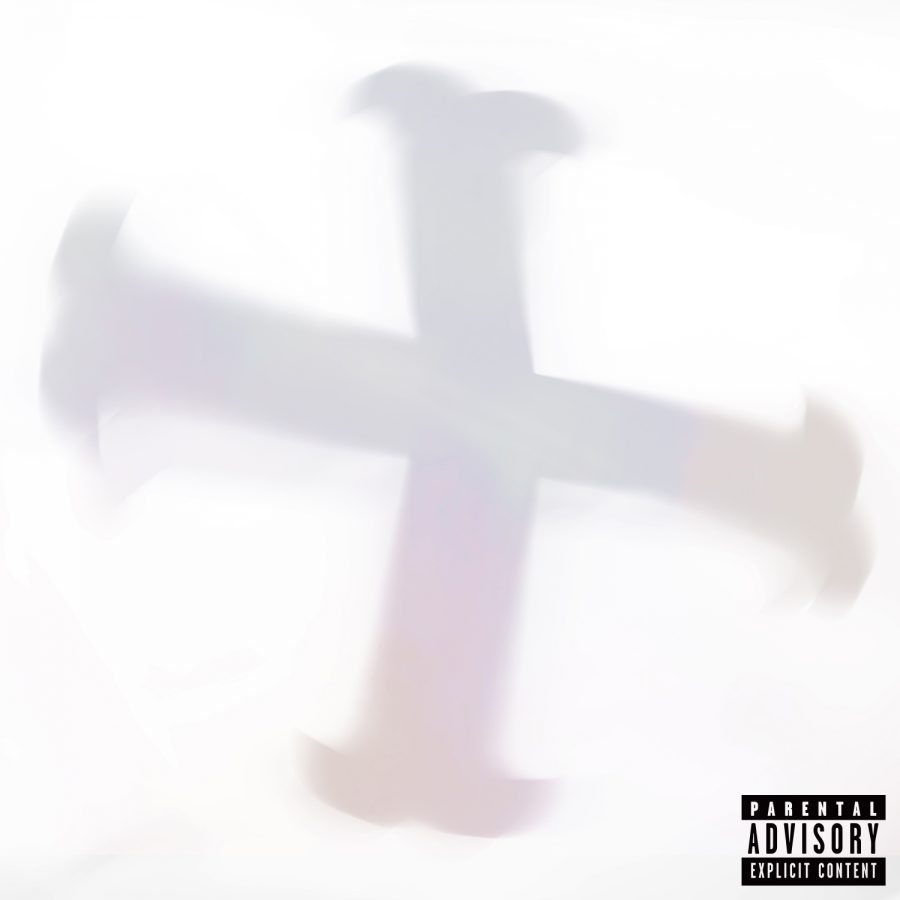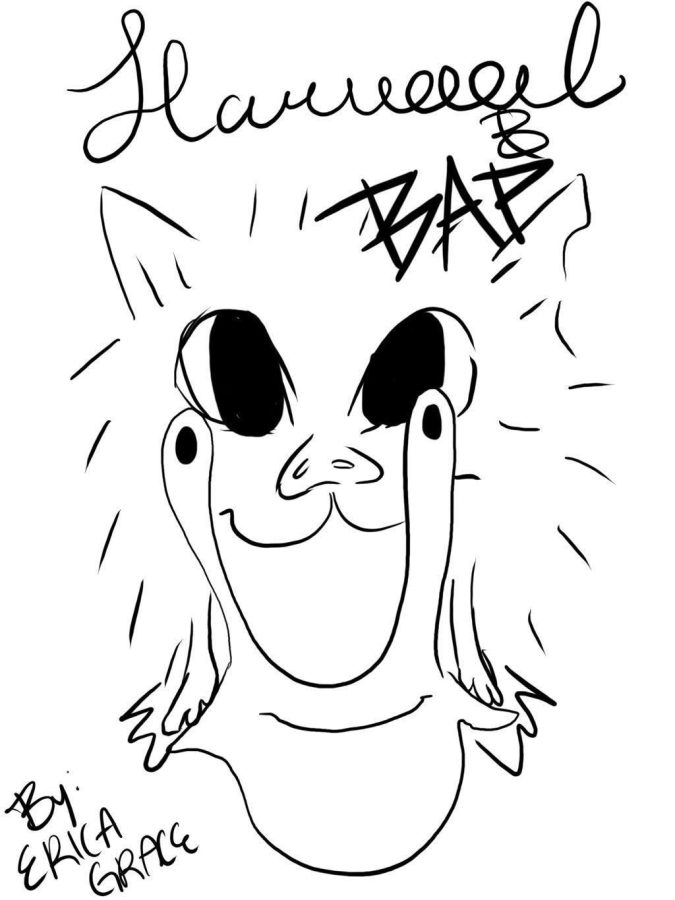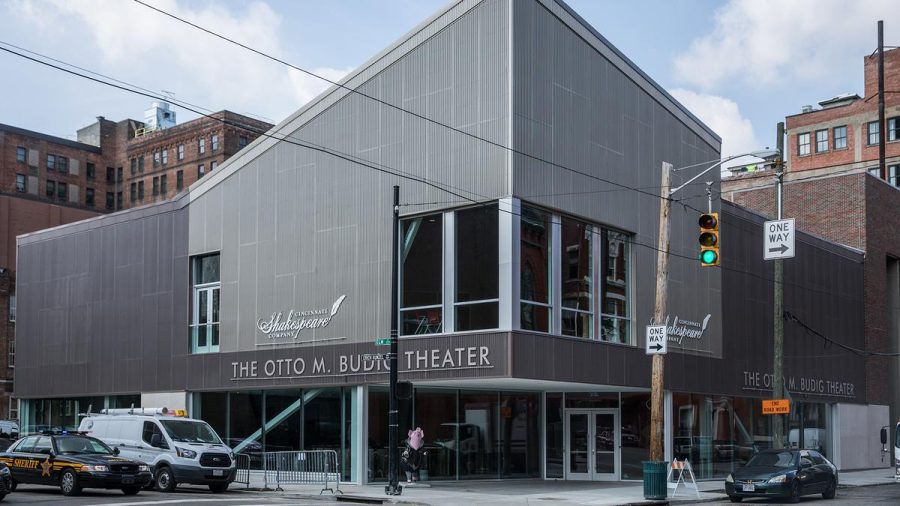By Liz Keller ’17, Arts & Entertainment Editor
On July 20th, 2016, the emos rejoiced as My Chemical Romance deleted their breakup tweet and posted a teaser video on their YouTube channel along with the date 9.23.16 and changed all of their social media to MCRX. Even if you’ve left the eyeliner and black skinny jeans behind, you should have known something was up with the amount of memes adorning the internet. No one knew what was happening– was it a blessed reunion, a tour or perhaps just a re-release? The next day we were informed that it would simply be a re-release, which prompted rage from the fans and a lot of angry rants about My Chemical Romance’s former label, Warner Brothers Records. (I was determined not to buy the album but ended up pre-ordering it anyways.) But hey, Liz, why are you reviewing a re-release? Well, we got not 1, not 2, but 11 unreleased demos along with the album. That collection of songs is known as Living With Ghosts.
Sadly, I was not given the chance to interview My Chemical Romance for this article, so all general information will be coming from Alternative Press’s article in which they talked to producer Rob Cavallo. These demos came from microphones that were set up around the Paramour mansion when the band was recording their most successful album, The Black Parade.
The first track on the album, The Five Of Us Are Dying, is the original demo for one of the most famous My Chemical Romance songs ever, and certainly the one that was the most successful on the radio: Welcome To The Black Parade. The most surprising thing about this track is that the infamous G note is not present. For those of you who don’t know, the infamous G note on the piano is either the emo mating call or the cue for everyone to simultaneously break into tears, it depends on who you ask. The song starts off with a very different intro, though it still soft and features simply piano and Gerard Way’s vocals. The transition to the more recognizable part of the song, complete with guitars, bass and drums, is a little bit rough. There isn’t really a sequence of notes that joins the two sections. Many of the lyrics are different, but still amazing, and the song is even darker, if that’s even possible.
The next song, Kill All Your Friends, should be familiar to the MCR superfans as it features on The Black Parade: The B-Sides. It starts with an enticing bass line, which leads into an angry, and mildly depressing song. The lyrics discuss the urge to party after a funeral, and express disdain towards small-town life. It has a very hopeless point of view about their ability make it out of the small town, and once they do a deep desire to never return. Party At The End Of The World has an amazing beat, but lyrically hasn’t progressed as far as most of My Chemical Romance’s songs. It would be a sure album song for many other bands, but My Chemical Romance is a band known for its complex and thought-provoking lyrics. It also seems to lack the darkness that marks The Black Parade.
The next song should also be familiar to many My Chemical Romance fans: Mama. The intro is essentially the same, but the instrumentals don’t seem as developed as the final version of the song. Many of the lyrics are the same as well, so it’s basically a rougher version of The Black Parade version. However, I can hear more emotion, theatrics, and perhaps a bit more snarkiness than the final. The next song should be familiar as well, My Way Home Is Through You was one of the iTunes bonus tracks for the Black Parade, and was readily available on YouTube as of 2006. The song is a little bit unintelligible, but it asks, “What kind of person are you?” I don’t have much to say about the track, because I can hardly hear what Gerard is saying, it’s even worse than early and mid-2000s Fall Out Boy, which is saying something since they have some of the most misheard lyrics in the history of music.
Not That Kind Of Girl is more put together, and features a little reference to the song These Boots Are Made For Walkin’, which is very, very different from My Chemical Romance. However, the song sounds very similar to Gun, another song that wasn’t really on a full album, but featured on the compilation album Conventional Weapons. The fact that singer Gerard Way repeats the phrase “I’m not that kind of girl” speaks to his struggles with gender identity and his tendency to push gender boundaries.
The next two songs share the same name, but are very different. The first House Of Wolves demo is very different from the song that ended up on The Black Parade. The song is very sad and slow, and seems like it would fit better on Three Cheers For Sweet Revenge than The Black Parade, so it was probably one of the first songs that they worked on. I don’t think it actually has a single lyric in common with The Black Parade’s version of House Of Wolves. The song begs for help and salvation, staying true to much of the Catholic imagery on Three Cheers For Sweet Revenge. The second House Of Wolves demo is very different, it’s almost the same as the final version of the song. Noticeably it misses the lyric “Take This to my Grave” which always reminds me of the first Fall Out Boy album entitled “Take This To Your Grave”. The second demo seems to be even more angry, bitter, and personal than the final track.
Emily is a nice break from the hard and heavy second House of Wolves demo. It starts out with a clean drum beat which is accompanied by a dark song about the suicide of Emily. The line “It was the last time I saw her alive/ Sometimes you do the things you need to do to survive” is darkly ironic. It calls Emily home from wherever she has gone after her passing. Cavallo decided to leave in the end which breaks the dark spell with Gerard Way asking about the levels. This breaks the listener out of the trance that the song puts them in.
Disenchanted is another familiar song, as it is also on The Black Parade. The chorus is mostly the same, but many of the verses are different. “Maybe we’ll just shut up and play” speaks to the hopelessness of getting a message across through music. This couldn’t be farther from the truth with My Chemical Romance however, because the band has touched and changed the lives of so many people, and helped many people who were struggling continue on with their lives. In this song the band is disenchanted with life, the industry and society in general. It ends with more talking by the band, another glimpse into the recording process.
The final song on the album is All The Angels. This song could fit pretty well on The Black Parade, though it is much slower than the other songs on the album, and could also fit in pretty well with the songs on Conventional Weapons, which was the bridge between The Black Parade and Danger Days. This song is both catchy and sad, getting stuck in your head and then haunting you, like images from a horror movie that are stuck in your head even months later. Unlike many MCR songs it doesn’t single out the listener to help them, but groups them with others and blames them. It’s a haunting way to end the album, leaving you feeling unfulfilled and slightly guilty, though for what you don’t know.






